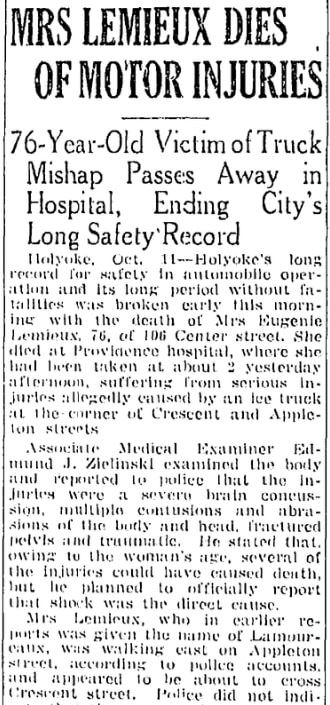Introduction: In this article, Gena Philibert-Ortega gives a great genealogy tip for finding your female ancestor’s elusive maiden name. Gena is a genealogist and author of the book “From the Family Kitchen.”
There’s no doubt that one of the biggest frustrations facing genealogists as they research their female ancestors is the elusive maiden name. As family historians, we concern ourselves with connecting each generation’s ancestors to their parents. Without that maiden name, learning more about our female ancestors can be problematic at best.
Before you get too frustrated with your search, it’s important to stop and think about what you do know about her. I realize that you feel like you know nothing – but you actually may know enough. If you know her husband’s name, you might have all the information you need to get started.
The Mystery of Mrs. Lemieux
Recently I was researching my Philibert line and decided to put in the name of my great-grandfather’s father, Pierre Philibert, in the GenealogyBank search engine. I was hoping for results about my great-great-grandmother, since women prior to the early 20th century were referred to as “Mrs. [Husband’s Name]. So, one way to find a female ancestor is to search using her husband’s name.
While looking for something about my Philibert ancestral couple, my results list included a newspaper article with an unfamiliar name: Mrs. Lemieux. As I read this rather lengthy combination newspaper article/obituary, I surprisingly soon learned quite a bit about the wife of Pierre Philibert!

“Mrs. Lemieux Dies of Motor Injuries” is about the unfortunate accident that claimed Mrs. Eugenie Lemieux’s life when she was struck by an ice truck. For those researching her life there is quite a bit of information in this newspaper article, including: details about the accident; the fact that previous reports misspelled her surname as Lamoureaux (helpful for finding additional newspaper articles); witness reports; and even the name of the doctor who took care of her.
In the fourth paragraph we read the typical obituary details, including the names of those who survived her. And that’s where the “Aha!” moment came that is such a thrill to genealogists.
That paragraph reads:
“Mrs. Lemieux leaves two sons, Narcisse Dion, at home, and George Dion of Holyoke; three brothers, Charles, Joseph and Theodore Boufard of Canada: two sisters, Mrs. Pierre Philibert of Lowell and Mrs. Francis Maltais of Concord, N. H.”
This one paragraph provides us her son’s names and locations (notice they have a different surname) and her siblings’ names. We now know her maiden name because her three brothers, Charles, Joseph, and Theodore Boufard, are listed. We also know the married names (and, thanks to the listing of their brothers, the maiden names) of her sisters: my ancestor, Mrs. Pierre Philibert, and Mrs. Francis Maltais.
If we were researching Eugenie Lemieux, we now have some clues that would lead us to other records, such as her death certificate, and two possible marriage records (to a Mr. Dion and a Mr. Lemieux). We also could start searching her brothers’ names (as well as her maiden name) to possibly find information about her parents.
That’s a lot of information as a result of searching on the name of an ancestor’s husband. If I didn’t know anything about Pierre Philibert’s wife (who was Marie Ann Boufard by the way) – by searching her husband’s name, I learned about her birth family, the names of her siblings, and her maiden name, in an article that really had very little to do with her or Pierre.
Use What You Know
Good research requires us to think outside of the box. It may seem like knowing a maiden name is essential for finding the details of a female ancestor’s life – but in reality, knowing her husband’s name can be beneficial.
I know that not knowing your female ancestor’s maiden name is frustrating. I sympathize with the pain of searching for a maiden name and coming up empty-handed. However, remember one of the benefits of newspaper research is that you can enter what you know, such as her husband’s name, and find information that you weren’t expecting.
Explore over 330 years of newspapers and historical records in GenealogyBank. Discover your family story! Start a 7-Day Free Trial
Related Articles:

I too have had problems trying to find a female member when doing genealogy research. Sometimes I have found the female in the obit as a survivor of her parents. Then there are times there was no listings of the survivor. I have found that if I put that part over to the side and just wait a couple of weeks, then go back and try to track down the female I do find that person.
Mary, there is a benefit to repeating a search at a later date. Thanks for reminding us of that.